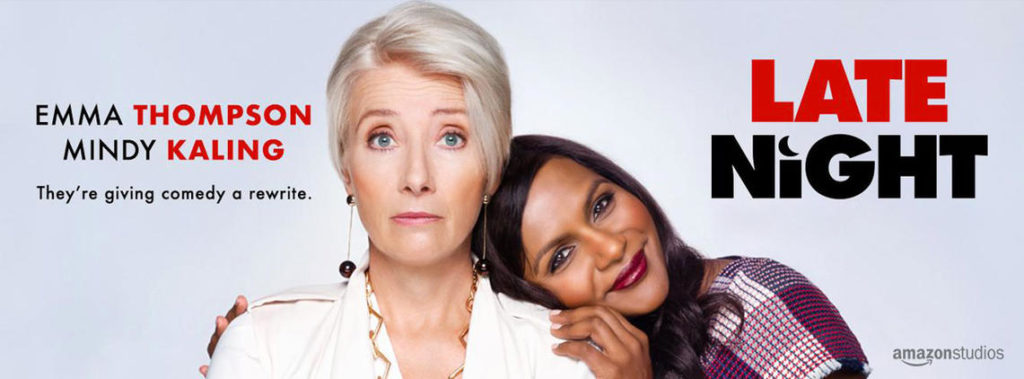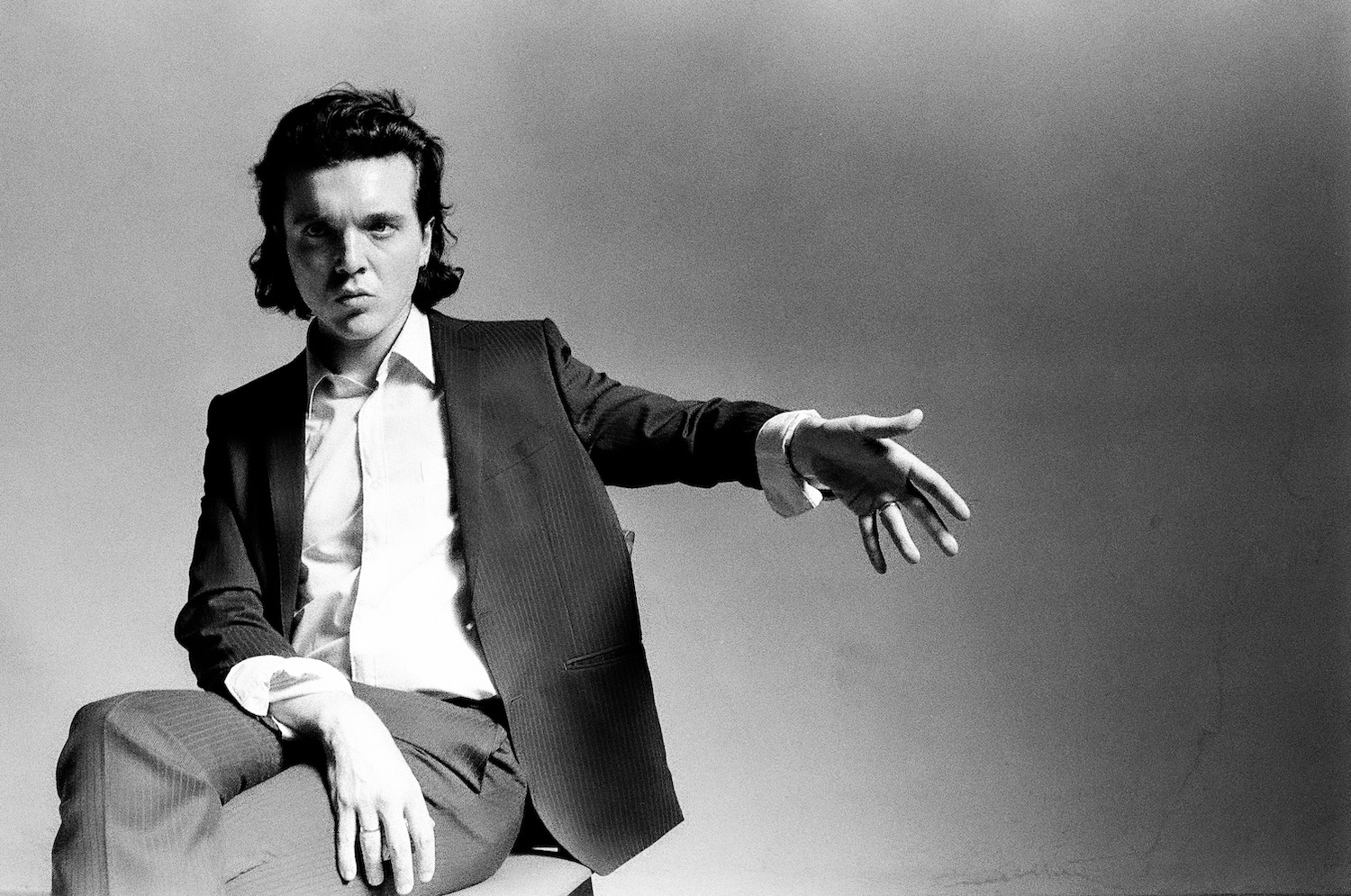
Female Comedy hits a nadir on Late Night
I was several minutes though Late Night’s opening scenes before I remembered I was meant to be taking notes for this review. That’s how mesmerising Emma Thomson and Mindy Kaling are in this frothy film about succeeding in show biz in New York City when you’re not a white man of privilege.
Thompson, plays Katherine Newbury, the uncompromising long-time host of Late Night who eschews social media and ‘low’ comedy, and whose egocentric, complacent life is upended when she discovers she’s to be replaced as host by a misogynist white man.
Thompson, who’s own career began as a comic in England, is in her element on Late Night: channeling both Helen Miren and James Corden, while slaying an elevated drag king lewk and Annie Lennox locks.
Kaling is Molly Patel, an impulse ‘diversity hire’, with no television experience and limited comedy writing, who’s hired as a token brown-skinned women in an otherwise all-white male writer’s room in a ‘hail Mary’ attempt to lift ratings. She’s also always dressed beautifully, which the film makes fun of in another meta moment.
The flavour of Late Night is earnest slapstick. In an opening scene Molly (Kaling) is standing outside the NYC studio of Late Night, the hit show that’s been running for nearly three decades with Newbury as host. Molly idolises Katherine. Before her unlikely job interview, she closes her eyes and makes a wish… then a giant garabage bags hits her square in the face.
Late Night is a light-weight ‘personal journey’ comedy with a twist on the romcom formula. Here the romance is about female friendship, trust and vulnerability. The comedy is post #metoo and at the expense of prejudice and intollerance, and not at the expense of the women — who are all fully in their power and femaleness.
This film also passes the Bechel test in every scene. Whenever Thompson and Kaling are on screen, or Amy Ryan, as the network president, no one’s talking about how to catch a guy.
There is some painfully hilarious commentry on the entrenched sexism in comedy when Molly finds that the ladies room is used by the men for ‘number 2s’ because there’s just no women in production.
The only niggle is that someone with no TV or comedy experience could walk straight into a successful TV show and write gold. However this gives the film license to explain to the audience, through Molly, how TV gets made. The montage covering a day in the life of a comedy writer is especially fun and clever. Kudos to cinematographer Matthew Clark for this dynamic scene that feels like a single long take.
Kaling herself, like Molly, is freakishly talented and workhorse perfectionist. Aspects of the film, written and produced by Kaling, are clearly biographical and this allows her to use humour to address the casual racism, sexism and ageism she’s experienced in show biz head-on.
At work, Molly is often yelled at, bullied and gaslighted by Katherine and her writer colleagues in the name of producing the best show. Yet Molly handles the barrage the way we all wish we could – with a big cry under her desk and just trying harder.
Molly’s repeated crying at work (and not always in the toilet!) stands out as especially gender political. Women crying at work is often seen as weak and makes men uncomfortable. To see a smart woman be affected by bullying in a comedy, to sob and allow hereself to be comforted is radical for mainstream cinema, not to mention real life.
The supporting cast, especially John Lithgow as Katherine’s much older husband, and Dennis O’Hare, as her senior producer, bring another layer of gravitas to the film and help elevate some of the more cliche material and make this movie a mainstream must-see — that also has a lot to say about how things are; and how they should be in the world.
Words by Irena Bukhshtaber (aka Irena Bee)
Irena is a writer, film and TV critic and PhD student.



